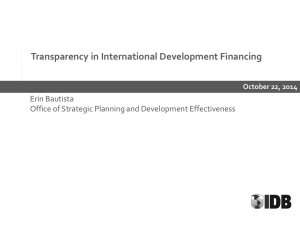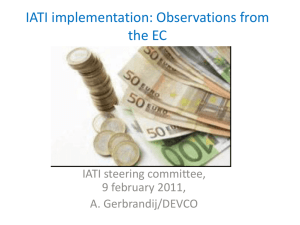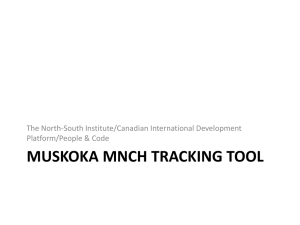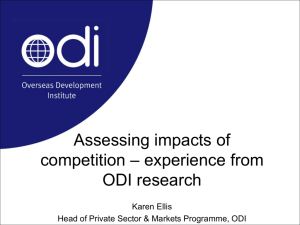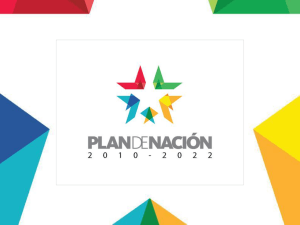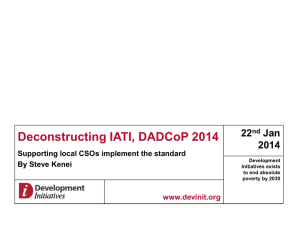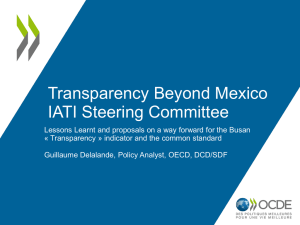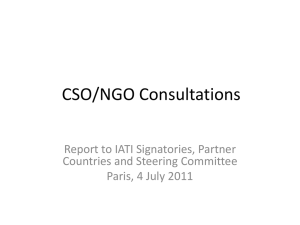USAID-Claudia-Schwegmann-IATI-SC-15
advertisement
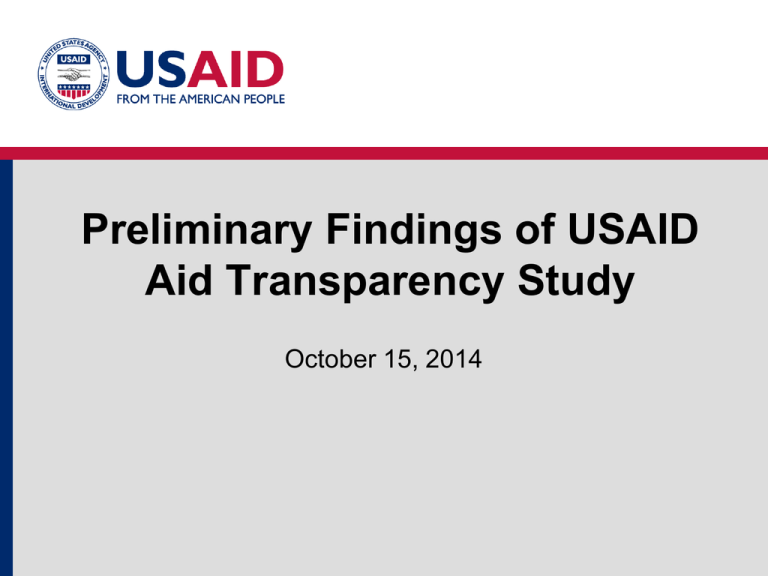
Preliminary Findings of USAID Aid Transparency Study October 15, 2014 Overview of the Country Pilots • Basic data: Country visits to Zambia (12-16 May), Ghana (2327 June) and Bangladesh (23-30 September); 1 representative USAID, 3 consultants • Methodology: Desk study, semi-structured interviews (Zambia 27, Ghana 36, Bangladesh 27) and round-table and feedback discussions (Zambia and Ghana) • Government stakeholders: ministry of finance, line ministries, anti-corruption commissions, accountant general's office and parliamentarians • Other stakeholders: CSOs, print media, radio stations, online media, open data activists, private sector and academia Current collection of aid data by partner country governments • Process: Largely a manual collection of aid data by MoF, AIMS beta in Bangladesh • Challenges: Cumbersome process, error prone, inconsistencies • Donor-Gov mechanisms are in place, but not always functional, focus on planning and results • Unmet data needs: off-budget data, forward looking expenditure, sub national data • Data sharing within government: not always effective • Donor communications with the public: press releases, events and informal sharing, local public is perceived to be uninterested, key target are taxpayers back home Interest in aid information outside national government • Stakeholder outside of government are interested in aid information • Current access to aid information through media, MoF publications & informal contacts. • Access to information on aid information often difficult and cumbersome. • Data exchange among donors: existing processes informal contacts • NGO advocacy work on aid transparency Examples for current use of aid information • • • • Media reports are often limited to project launches Monitoring results of development activities at local level Follow the trail of climate funding Business and funding opportunities Information priorities • • • • • • • • • Basic project data: Project name, implementer, time-line, budget Sub-national geographic data Financial details Project documents: detailed budget, activities, objectives, strategies Conditions Results information Contributions of individual donors to funds (e.g. climate fund) Contact person to obtain more information if needed Off-budget data including on aid provided by INGOs Awareness of IATI and use of online tools (Foreign Assistance Dashboard and D-portal) • Very low awareness of IATI • Hardly any use of online resources (IATI registry, FAD, DPortal)However, most data needs expressed were covered by IATI standard • Communication and promotion of IATI data is responsiblity of all stakeholders Making aid information more accessible • Direct online access by citizens is not realistic in Ghana and Zambia • Intermediaries exist, they are interested • Intermediaries have access also in rural areas • Communication channels for intermediaries: local radio stations, CSO networks, government mechanisms

